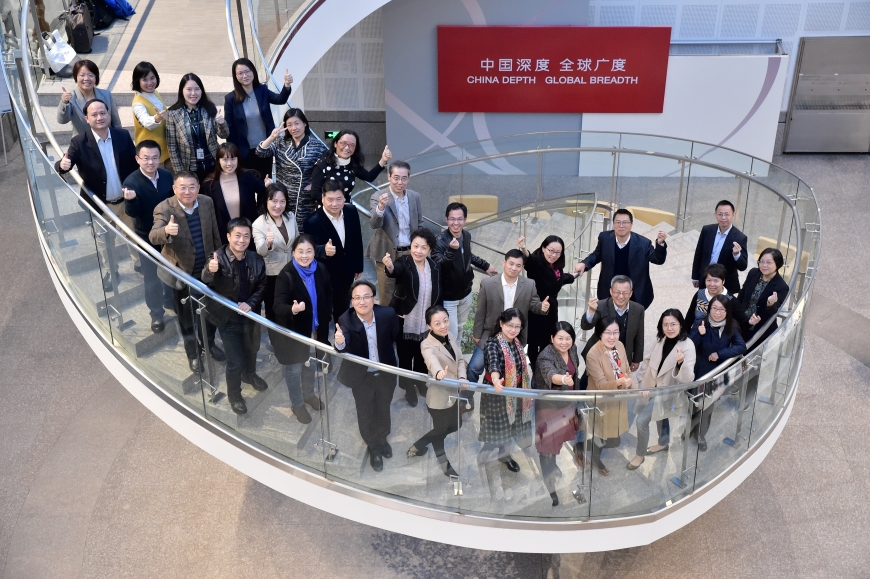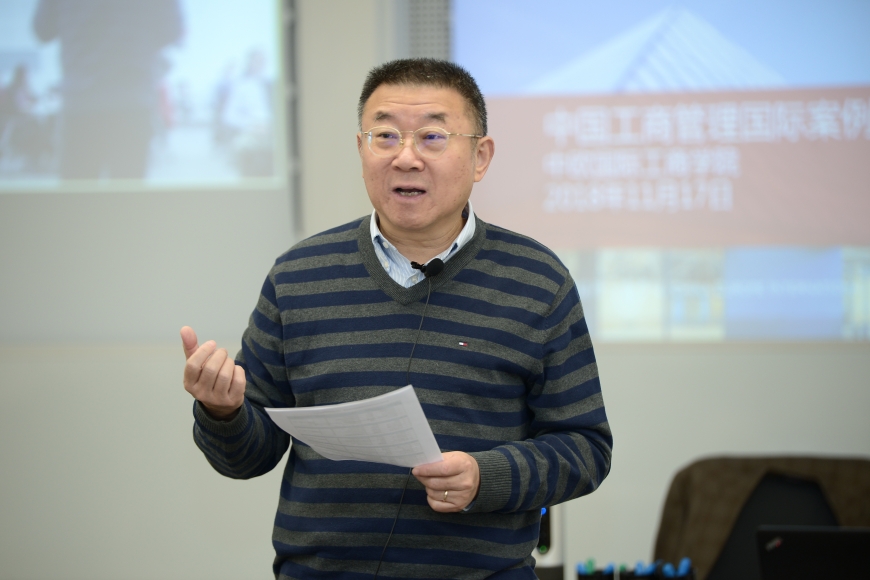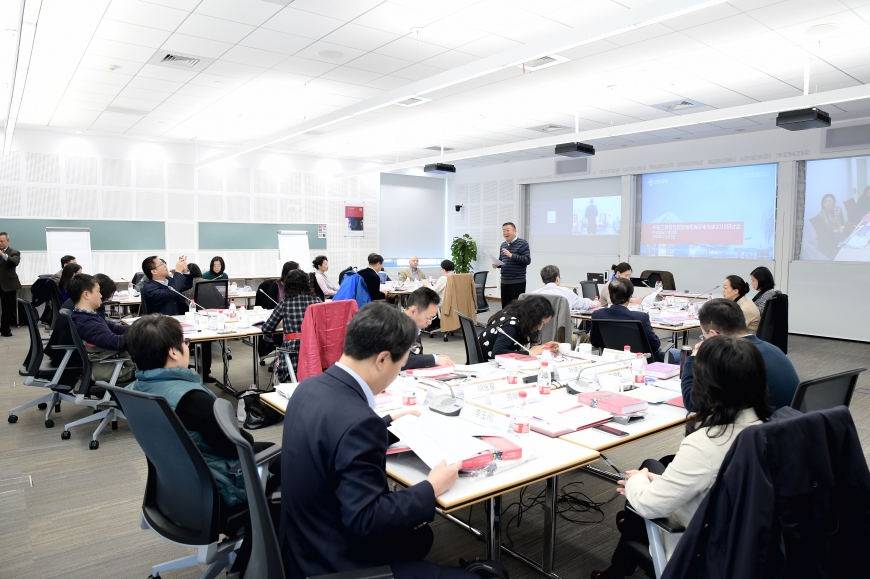CEIBS Hosts ChinaCases.Org Case Review Committee Seminar 2018
November 17, 2018. Shanghai – The CEIBS Case Center hosted recently the ChinaCases.Org Case Review Committee Seminar 2018 at the CEIBS Shanghai campus and Beijing campus (via video conference). Since last year’s event, the panel of reviewers has expanded to include more than 30 experts, including award-winning case authors and members from the Shanghai MBA Case Development and Sharing Platform, Tsinghua University, CEIBS, and other academic institutions in China and overseas. The seminar is intended to help put in place a common review mechanism which can be used to ensure the quality of cases entered into the ChinaCases.org.

CEIBS Case Center Director Professor Chen Shimin delivered the welcome address in which he thanked the experts for taking time out of their busy schedules to attend the seminar. In doing so, Prof. Chen also pointed out quality is a lifetime project and that ChinaCases.Org would not have been able to maintain its pace of development without the perseverance and dedication of those in attendance.
Prof. Chen explained three major purposes of the CEIBS Case Center: First, to support CEIBS professors in developing more high-quality teaching cases for management issues in China and leading innovation in teaching and research. Second, with the support of the Shanghai Municipal Government and through collaboration with leading business schools in Shanghai, to lead the construction of the Shanghai MBA Case Development and Sharing Platform for case sharing and wider application of the case method in management education and training. As Prof. Chen explained, the project aims to bring management education in Shanghai to a higher level, while at the same time contributing to the quality of management education nationwide. Third, to operate ChinaCases.org with a focus on China and following international standards so as to develop the platform into the top library for teaching cases about management issues in China.
Prof. Chen then reviewed the history of the Shanghai MBA Case Development and Sharing Platform project, summarising the progress made over the past five years with support from all sides, and presented the goals and challenges for the next five years. After that, he explained in detail the case submission process, the review and judging process, the award selection process, and the publishing process of the Global Contest for the Best China-Focused Cases (hereinafter referred to as “Case Contest”). In response to feedback gathered from more than four years of case review work, an editorial board for five major disciplines – finance and accounting, strategy and general management, marketing, HR management and organizational behaviour, and operations – was established in 2018. The board is intended to replace the group review process in the previous evaluation system and editors will work together with blind reviewers to ensure the quality of cases entered into the library.

An important part of this year’s agenda was to establish a common ground on case evaluation criteria. During the session, Prof. Chen revealed the modified evaluation criteria for the Case Contest. The new set of criteria is more streamlined and focused than the previous version. The number of evaluation items for case texts is reduced to 5 from 9 and will now include importance, controversy, sophistication, logic and sufficiency of evidence, and writing norms. The number of evaluation items for teaching notes has been reduced from 7 to 4, with teaching objectives, teaching plans, problem analysis, and supporting information being retained. In hope of achieving desired results, four representative cases of different quality were picked prior to the seminar for trial evaluation by participants. Their comments and scores were then summarised and analysed at the seminar, during which they were also invited to participate in group discussions and voice their own opinions. After intense discussion on issues like definitions of important evaluation items for case texts and teaching notes, characteristics of cases entering the library, and the role cases can play to support classroom teaching, a common ground for evaluation was finally reached. Although the experts came from very different academic background, the results of their trial evaluation of the four cases turned out to be fairly consistent.

In concluding the session, Prof. Chen made a speech combining the participants’ insights with his own personal views on case evaluation. Through in-depth discussion at the seminar, it is believed that the common understanding reached on the evaluation criteria along with the professional judgment of the experts will help make case revision work more focused, so that more high-quality teaching cases for management issues in China can be published on ChinaCases.Org.












